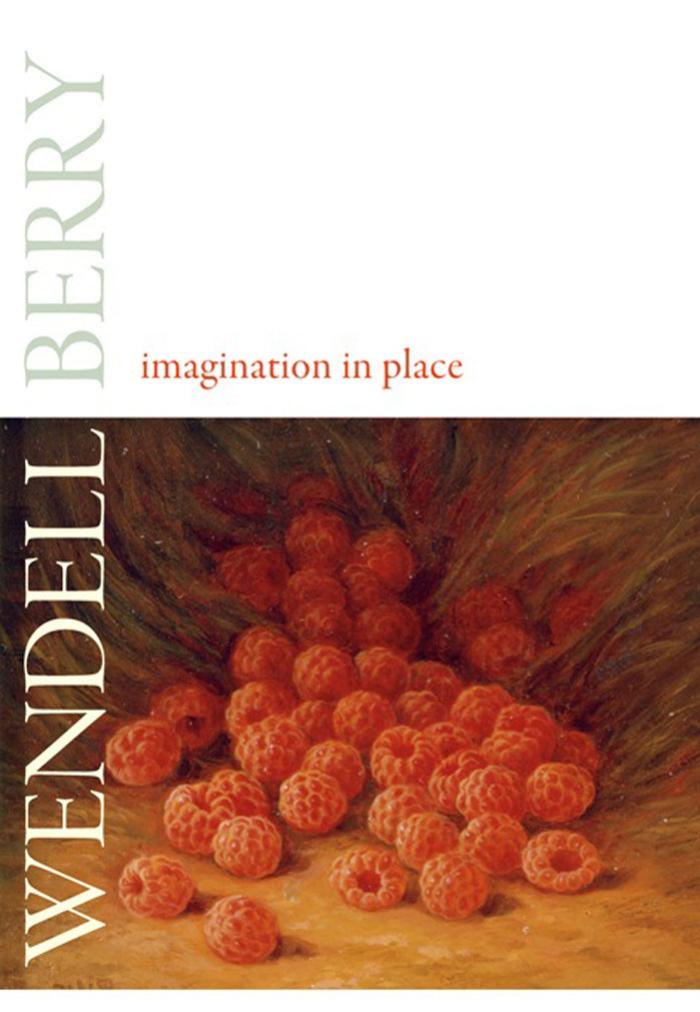Imagination in Place by Wendell Berry

Author:Wendell Berry [Berry, Wendell]
Language: eng
Format: epub, pdf
Published: 2010-04-14T00:07:00+00:00
I hope I have adequately prepared you to imagine my relief. Now I must ask you to imagine something else. However many poets there may be who know from experience the subject of this poem by Jane Kenyon, I surely am one of them. I have lived countless times through that moment at the end of a day's work when its difficulty and heat and weariness take on a kind of sublimity and you know that you are alive both in the world and in something greater, when it is time to go and yet you stay on, charmed. I had never tried to write a poem about that moment, and on that day, when I had heard Jane read her poem, I knew that I would not need to write one; Jane had written better about it than I could. Sometimes I feel competitive or jealous when I suspect that somebody has written better than I can about something I know. When I am certain that somebody has done so, then I am relieved and I feel happy. "Twilight: After Haying" made me happy that day in 1986, and it has made me happy every time I have read it since.
Wittgenstein said that "In art [and, I assume, in writing about art] it is hard to say anything as good as: saying nothing." I believe and honor that, and I keep it in mind. But also we obviously need to speak from time to time of the things that have moved us. We need to wonder, for instance, why we remember some things and forget others. I have remembered Jane's reading of her poem that day, I think, because it was impossible to mistake the revelation of the event: Here was a poet present in her work with an authority virtually absolute. I don't mean that she is in the poem personally, but that all her gifts are in it: her quietness, gentleness, compassion, elegance, and clarity, her awareness of mystery, her almost severe good sense. This poem, like just about every one of her poems, is unconditional; it is poetry without qualification. It has no irony, no cynicism, no self-conscious reference to literary history, no anxiety about its place in literary history, no glance at the reader, no anticipation of the critic, no sensationalism, no self-apology or self-indulgence. How many poets of our time have been so unarmed as to say, "The moon comes / to count the bales ..."? As she herself said (in the next poem of The Boat of Quiet Hours):
Download
This site does not store any files on its server. We only index and link to content provided by other sites. Please contact the content providers to delete copyright contents if any and email us, we'll remove relevant links or contents immediately.
| African American | Asian American |
| Classics | Anthologies |
| Drama | Hispanic |
| Humor | Native American |
| Poetry | Southern |
Crazy Rich Asians by Kevin Kwan(9267)
How to Bang a Billionaire by Alexis Hall(8132)
Giovanni's Room by James Baldwin(7309)
Win Bigly by Scott Adams(7178)
Little Fires Everywhere by Celeste Ng(7174)
Pachinko by Min Jin Lee(5676)
Tease (Temptation Series Book 4) by Ella Frank(5623)
The Fire Next Time by James Baldwin(5418)
The Perks of Being a Wallflower by Stephen Chbosky(4632)
China Rich Girlfriend by Kwan Kevin(4551)
Bluets by Maggie Nelson(4539)
First Position by Melissa Brayden(4515)
The Sympathizer by Viet Thanh Nguyen(4381)
Rich People Problems by Kevin Kwan(4276)
A Little Life (2015) by Hanya Yanagihara(4273)
Right Here, Right Now by Georgia Beers(4192)
Walking by Henry David Thoreau(3945)
Catherine Anderson - Comanche 03 by Indigo Blue(3614)
The Death of the Heart by Elizabeth Bowen(3599)
